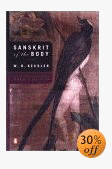
|
|
Mouthpiece
Children were given a necklace
of peony-roots to chew on
while teething. Were given
amber to suck for success.
A wolf's tooth could foster
good dentition, if clutched
by the child in sleep.
A milk-tooth, shed, was burned
and a rhyme sung, to prevent
the child having to seek it after death.
This is a world of facts
alive beyond reason. You live
here in their future perfect
death, where their spirits must worry
about their teeth in museums,
as I worry about the teeth
of my long gone lover still—
what could they do to hex me,
what future grief vex me,
ghosting their way in-and-out
of bodies, spirit of my tongue
still trapped in forsworn ivory?
May he never speak
of his new love's teeth.
May a spell leave him
edentulous as anteaters,
sloths, things which creep.
May my mouth stay ghostless
and fresh as May leaves.
May each tooth my tongue tickled
loosen and cleave off
as his loose vows did,
leave him only a sleeve
of gums, to frighten all lovers,
make all lovers run.
Let justice bite him.
Fang superstition.
Look at Me
Reading Raymond Carver in the emergency room.
How appropriate.
Waiting for my mother's blood results,
how much toxicity this time?
She is bored, wants to leave,
already knows she will survive.
I stare at a retarded man,
grizzled, werewolf-toothed,
rocking his chair dangerously
back-and-forth
despite staff attempts to make
his insanely laughing mother stop him.
She giggles, says something in Spanish,
something none of us understands.
She mimes handcuffing, chortles.
When his chair finally tips,
his head smacks the floor fast
and two nurses and a P.A.
take him off for treatment.
He looks as though lightning struck him;
he can't connect the act with the damage.
His mother doesn't touch him.
We all want to slap her,
staff and civilians alike.
We've been here for five hours
and I haven't eaten for eighteen.
Down the hall, a drunk reacts
when a child screams through stitches
to her head, starts beating
the walls of his room with a metal food tray
and a nurse runs to fetch
the De Sade gear for the security guy
who carries it with a cowboy swagger.
The child is rushed off
in a nurse's arm until the area's contained.
Still, everyone here is bored.
You can smell it. This doesn't approach
exciting around these parts.
When my grace finally breaks
and I bitch, it turns out the results
have been in for two hours.
She's fine.
We flee. Her face looks like a refugee's
but she's cutely dressed for 75,
a spry elf in felt beret.
We take the long way home to see
psychedelia of Christmas lights and gossip
and she has the nerve to ask me
to take her shopping. Did I mention
she has pneumonia
and smokes three packs a day?
But she is happy again:
she talked the doctor
out of another tiresome crisis worker.
The last one told her
a parable about "burnt cookies."
She must stop eating them.
This is now a family joke
I hope to pass on.
Flushed with victory, she sings
along with the radio's carol,
"It's the best time of the year."
Croaks it, really.
I feel like a taxicab
in outer space, but I smile.
What is the human soul?
It terrifies me when I realize
that we are just one of its
passing interests.
W.B. Keckler's Sanskrit of the Body
won the National Poetry Series 2002 (Penguin 2003). He is the author of Ants
Dissolve in Moonlight and Recombinant Image Day. He's just completed a
new ms., entitled Some Things That Used to Make Me Salivate. His work is
forthcoming in Fence, The Hat, First Intensity, Yefief and many others.
ForPoetry
|
